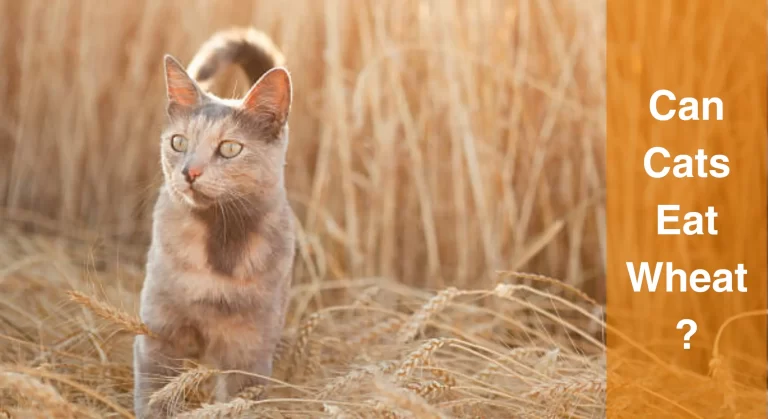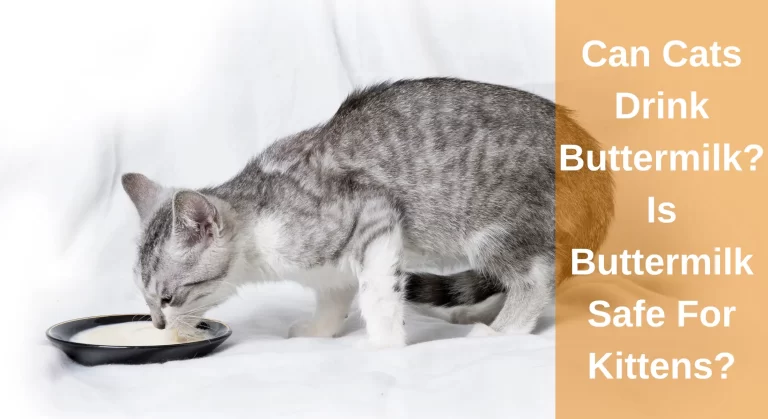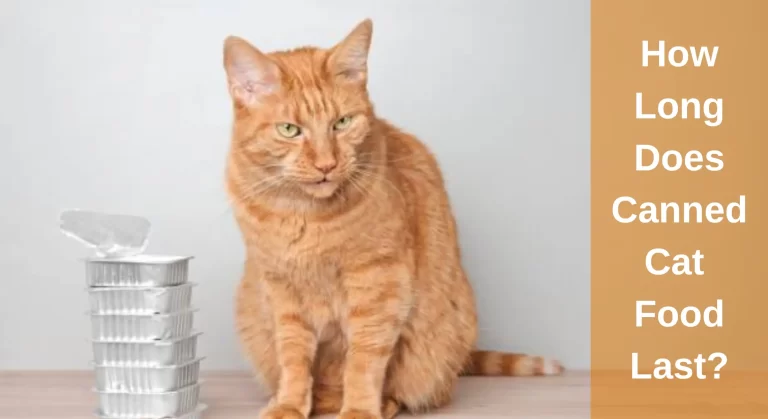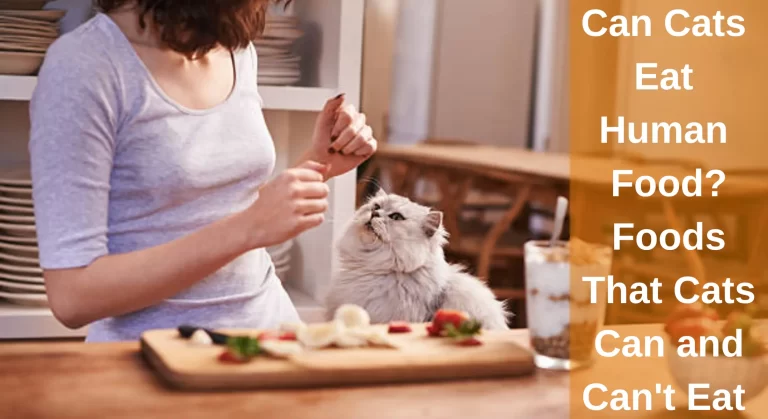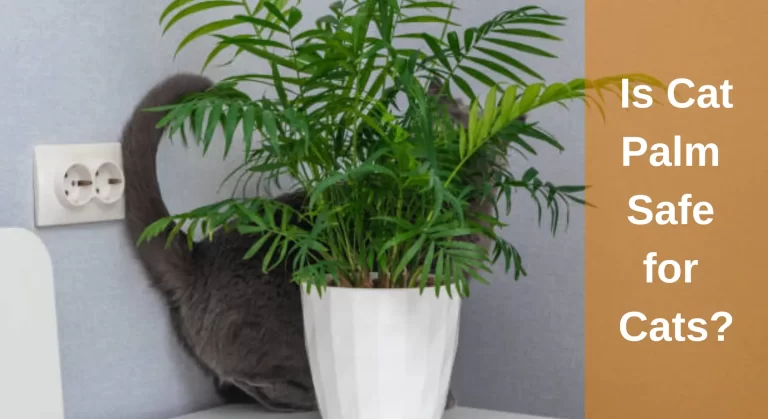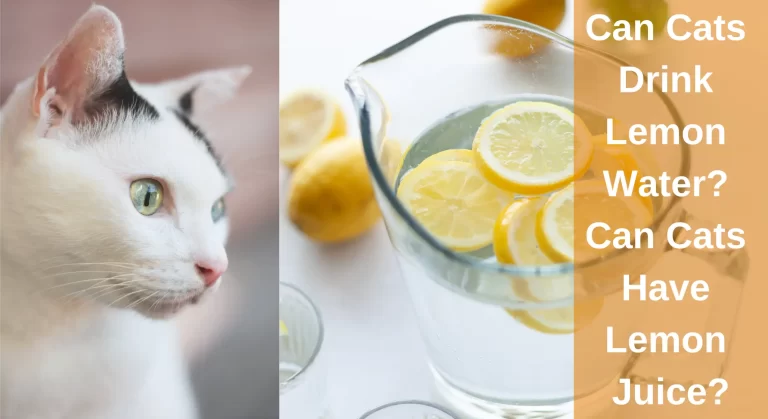Can Cats Eat Hot Dogs? Things You Should Know!
If it’s sunny weather and you’re doing a BBQ picnic, then without hot dogs, it’s incomplete. These juicy hot dogs covered in ketchup aroma can elevate your neighbour’s and your cat’s appetite as well. But most cat owners ask if we can serve hot dogs to our cats if they start poking near our BBQ food?
Can cats eat hot dogs? You can give them a bit but not a big piece because they’re inedible to cats. Hot dogs are harmful to felines because they’re heavily processed and include harmful substances such as including excessive levels of sodium, seasonings, starches, glucose, and high fructose corn. All these ingredients can disturb their stomach and cause severe gastrointestinal issues.
Although most cat owners may feed their cats hot dogs, if you want to know more about what kind of meat you should give your feline, then continue reading this post. Here I’ll explain the reasons for not feeding your cat processed meat, the health problems it can cause, and much more!
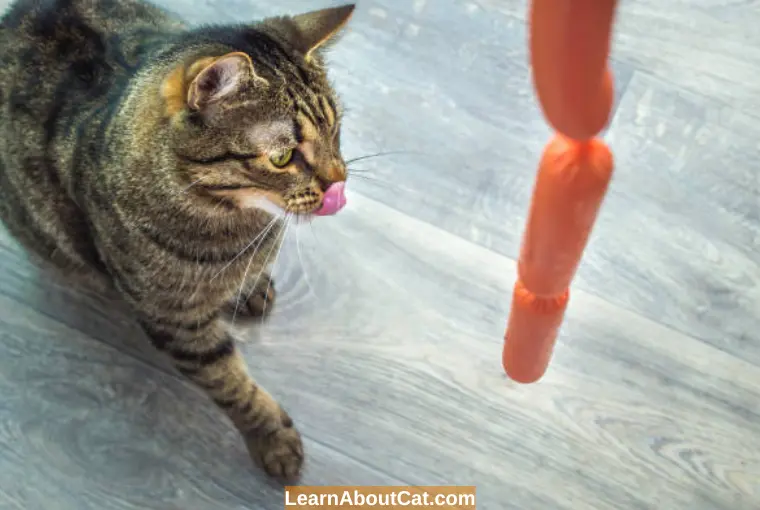
Reasons Why Hot Dogs Are Bad for Cats
Cats cannot eat hot dogs as they have high salt content as well as more fats. In addition, more flavours and preservatives are added to it, which may upset their stomachs. Whether they are cooked or uncooked, hot dogs are dangerous to cats. Some of the dangers associated with hotdogs pose to cats are as follows:
1. Contain High-Fat Content
Cats undoubtedly require certain fats to be in good condition, but hot dogs’ fat is far too high for them to consume safely. Research suggests that hot dogs contain 18.6 grams of fatty acids and 11.4 grams of protein. Our cats, however, need a diet that is heavier in proteins than lipids. To meet their need for more proteins and fewer fats, cats in the wild eat lean meat from lean animals like mice, rats, etc.
The consumption of fat-containing foods can lead to weight gain and obesity. Your cat won’t become obese from eating hot dogs unless it does so regularly.
Obesity is a problem for both people and cats and is currently seen as an epidemic. About 60% of cats in the United States are overweight. Therefore, as responsible cat owners, we must be very careful about what we put in our cats’ bowls. Kittens shouldn’t be given treats that result in them eating more calories than they should, especially if such treats include harmful saturated fats.
Check Out: How to Help a Cat Lose Weight with Multiple Cats at Home?
2. High-Level of Sodium
Overly salty diets can cause problems for both people and cats. It may cause issues in people, such as high blood pressure or heart disease.
However, hot dogs’ high salt content could be far worse for cats. If a cat intakes a small of sodium, it won’t do anything other than dehydrate; it’ll feel better after drinking some water. On the other side, excessive sodium intake can cause feline hypernatremia, often known as salt poisoning.
Salt poisoning can cause:
- Excessive thirst
- Nausea
- Diarrhoea
- Weakness
- Lethargy
- Seizures
- Tremors
- Anxiety & Depression
Cats are highly susceptible to sodium poisoning if left untreated, so avoid feeding them any foods containing sodium, especially hot dogs that contain extremely high levels.
3. Enhancements and Flavours and Topping
To make hot dogs flavorful and appealing, producers season them with ingredients like onion and garlic. Similarly, we add toppings on hot dogs, such as mustard and tomato ketchup, to improve their flavour. While adding these flavours and toppings to hot dogs makes them more enticing for humans to eat, it also makes them more dangerous and even potentially lethal for our animal friends. Cats are naturally toxic to onions, garlic, and mustard, and mustard can cause major gastrointestinal issues.
Interesting Reading: Can Cats Eat Cake?
4. Processed meat (Preservatives)
Since cats are obligate carnivores, it has long been known that they prey on small animals like mice, rats, and rabbits. Wild meat and hot dog meat are very different with reference to fat and salt content. Although hot dogs can initially seem to be ordinary meat, this is not the case. Hot dogs are made of processed meat. The meat is processed to add different chemicals, such as salt, nitrates and nitrites, preservatives, etc., making it pleasant for people but unhealthy for cats.
5. Nitrates, as well as Nitrites
Manufacturers routinely add nitrates and nitrites to processed beef when making hot dogs. The addition of nitrates and nitrites, which give hot dogs a red or pink colour, gives them an appealing meat-like appearance. Additionally, it gives hot dogs a salty flavour and lengthens their shelf life by preventing the growth of harmful microorganisms.
Unlike cats, whose bodies have not evolved to withstand excessive quantities of preservatives in the human diet, diets rich in nitrates may not be broken down in the cat’s digestive system.
What Are the Risks of Feeding Cats Hot Dogs?
A hot dog isn’t a healthy diet for felines. Moreover, feeding these kinds of excessively processed meats which are packed with salt and calories, can have adverse health effects on your cats. If cats consume a huge amount of hot dogs, they may get:
- Diarrhoea
- reduced hunger
- Elevated heart rate due to a high salt ratio
- Persistent thirst
- Lack of energy
- Nausea
- Stomach ache
Also, Check Out: Can Cats Eat Hot Cheetos?
What Happens If Cats Eat Hot Dogs?
A single hot dog bite won’t hurt your cat, but repeated intake might lead to a number of issues. Even hot dogs with reduced sodium still have more salt than a cat should eat. Your cat could become dehydrated if they eat too many hot dogs and salt. Since cats don’t often realise they are dehydrated, they may appear tired and nauseous. You could notice that your cat isn’t acting like themselves if they are dehydrated.
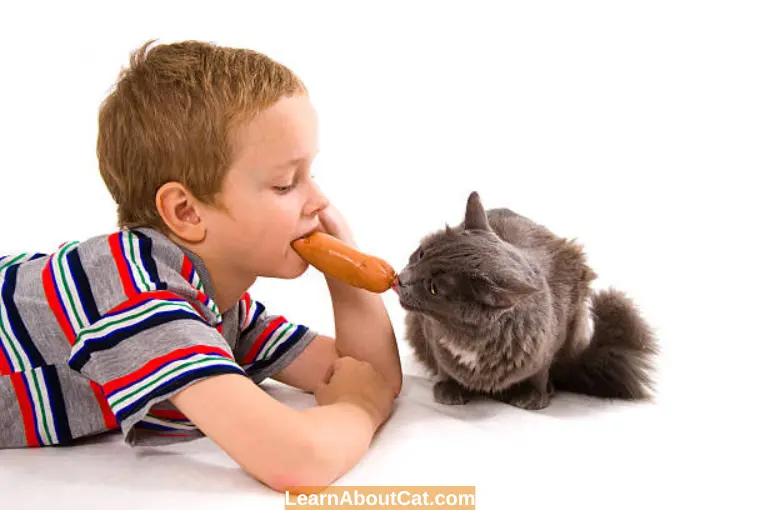
Even while dehydration is awful, salt poisoning is much worse. Now, this shouldn’t be a problem unless your cat habitually consumes hot dogs. Being that hot dogs contain a lot more salt than your cat should ever ingest, it shouldn’t be surprising that consuming them will harm your cat.
Sodium poisoning can result in a number of issues, such as:
- A high blood pressure level
- Ongoing dehydration
- Lethargy
- Nausea
- Vomiting
Also, Check Out: Can Cats Taste Spicy Food?
What Should You Do If Your Cat Eats a Hot Dog?
Your cat won’t become obese from eating hot dogs unless it does so regularly, so it is likely just to feel minor discomfort, bloating, and perhaps some nausea or vomiting after doing so. By comforting it and ensuring that it has access to adequate water to avoid dehydration brought on by the excessive salt levels, you may help your cat.
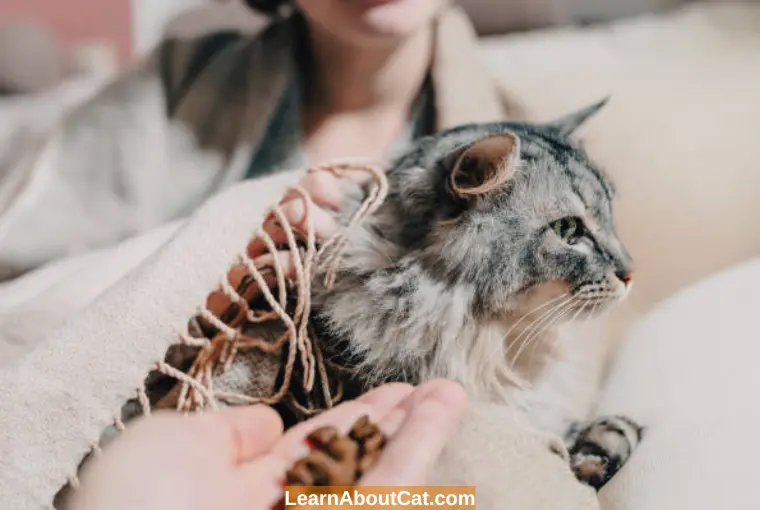
You must, however, also keep an eye out for the potentially fatal symptoms of sodium ion overload. The likelihood that your cat may become ill from the hot dog depends on a variety of factors. They are more likely to experience negative effects if they have ingested a lot, the hot dog is cured, and flavourings like onion and garlic—both of which are deadly to cats—have been added.
Salt poisoning can cause excessive thirst, nausea, diarrhoea, weakness, lethargy, seizures, tremors, anxiety, and depression.
Find Out: Can Cats Eat Goldfish Crackers?
Which Meats Can Cats Eat Safely?
Cats are obligate carnivores as they eat only meat or animal protein. Without these animal food sources, cats cannot thrive. They are non-vegetarians and have a healthy diet. They can get meat by eating cooked beef, turkey, chicken, and lean meats.
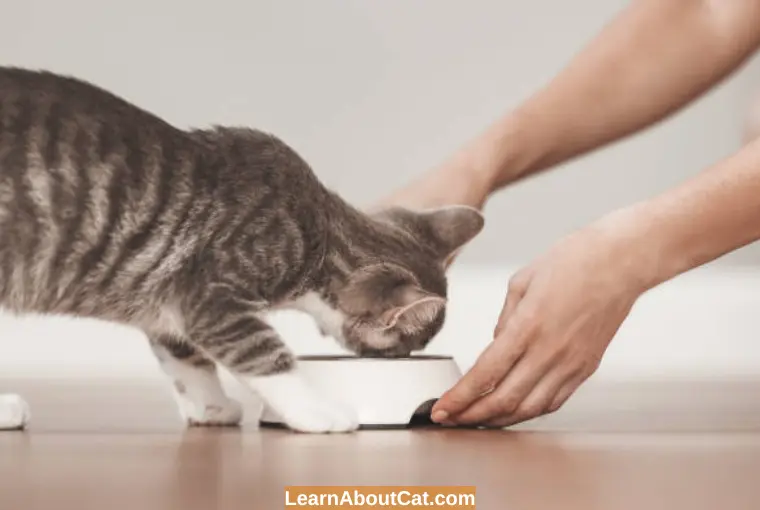
However, arginine helps cats’ systems get rid of ammonia. If ammonia is not removed, cats may lose weight, have nausea and diarrhoea, have neurological problems, or die in the worst-case scenario.
How Can I Ensure That My Cat is Eating a Balanced Diet?
Since cat food is manufactured specifically for cats, it contains substantial levels of both of these crucial amino acids, which helps to maintain their happiness and health. Furthermore, protein, fat, and carbohydrate ratios are precisely calculated and customised for your cat.
In addition, you must take care of their diet based on their age. For instance, kitten food has extra nutrients to support growth. Senior cat food will have more digestible protein sources since elderly cats’ digestive systems will perform less effectively, similar to humans.
Also Read: Older Cat Not Eating But Drinking: Reasons And How to Help
What Human Foods Can Cats Eat?
The bulk of your cat’s diet should consist of cat food to guarantee that it receives the vital elements needed for life and healthy functioning. It is sometimes OK to feed cats some human food if it is cat-friendly.
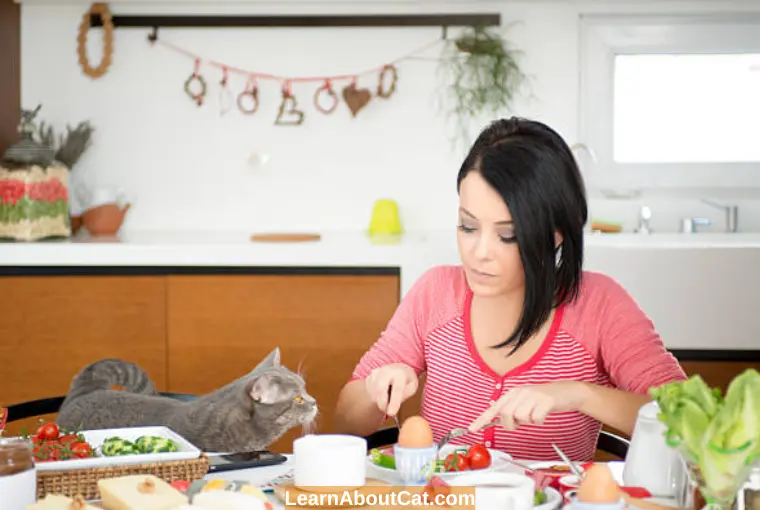
Canned or Cooked Fish
Fish is another delicious and generally healthy cat food. Natural oils found in fish might contribute to your cat’s lustrous coat and smooth skin. Fish, however, should only be given to cats occasionally since it lacks Vitamin E and might eventually result in a deficiency.
You must cook the catfish before eating it. The thiaminase enzyme, which is present in raw fish, breaks down thiamine, one of the essential amino acids for cats. Cooked fish is safer for cats as its enzymes become inactive.
Oatmeal
To clarify, oatmeal should only be consumed infrequently(as a treat). Cats frequently eat meat; thus, it could be difficult for them to digest consuming a lot of oats. A modest quantity, nevertheless, is okay and can help your cat’s nutrition.
Oats, rich in fibre and vitamin B, are indeed a part of several cat foods as this vitamin boosts energy, and fibres smoothly run their digestion. They can fulfil their appetite.
Lean and Natural meats
Unprocessed meat has similar nutritional benefits to the meat cats have evolved to consume in the wild, so it’s a perfect choice if you want to pamper your feline friend. Additionally, lean meat is preferred since cats have a harder time processing fats than proteins and because consuming significant amounts of fatty meats can cause obesity.
Eggs
Despite being an animal product, eggs include a lot of beneficial proteins and amino acids for cats. Eggs are a great treat if you occasionally want to give your cat human food. Just be sure only infrequently to feed your cat eggs. The shells of eggs must always be removed, and they must always be cooked completely. Your cat may become sick by eating raw eggs. In addition, the raw egg white protein avidin has the capacity to bind to Vitamin B7 and prevent the body from absorbing it.
Bananas
There are certain beneficial aspects of bananas. But, Although cats may also enjoy them as a nutritious snack, they should only be given as an occasional treat because of their high sugar content.
Spinach
Cats love lush greens, as you may have observed if you’ve ever seen your cat munching on the grass. Such food should be given less but seek vet advice about a balanced diet for your cat or what should be given to them or what time and what not.
Pumpkin
Don’t offer the spices; just the pumpkin to your cat. Pumpkin puree’s fibre and minerals can help with a range of health conditions, such as constipation and hairballs.
Find Out: Importance Of Pumpkin For Cats With Diarrhea
Melon
Cantaloupe, seedless watermelon or honeydew are some of the sweet fruits that feline buddies sometimes enjoy. Additionally, melon is a rich source of vitamins A, and C. Cats do not need to consume vegetables, unlike humans, but they may still be a safe and healthy treat. Your cat would like cooked carrots, but avoid the raw kinds since they pose a choking hazard.
Berries
Blueberries and strawberries are fantastic fruits to offer to your cat since they are low in sugar and antioxidant properties, but they should never be used in a pie.
Intresting Reading: Can Cats Eat Cranberries?
Frequently Asked Questions
Can cats eat turkey hot dogs?
Turkey does offer cats several dietary advantages. It is high in B – complex vitamins, selenium, salt, and many other essential minerals while being free of fats and calories. Unfortunately, it lacks fibre, which felines require to pass regular stools. So, it’s advised to feed turkey to your cats but in fewer amounts.
Can stray cats eat hot dogs?
No! Whether it’s your home cat or a feral cat, you can feed them more than a few kibbles of hot dogs. If you feed hot dogs in excess to a stray cat, they may die due to severe gastrointestinal issues because they may not have any parents to take care of them.
Why do cats need to eat meat?
The main components of meat are arginine and taurine. These are essential amino acids as the cat’s body can’t produce them; they are taken from food. As meat is an important part of their diet, such components can only be taken from meat. As a result, they are regarded as essential amino acids.
A lack of these amino acids can cause taurine or arginine insufficiency in cats. The health of their eyes, brains, nerves, and immune systems, as well as their heart, depend on taurine. Insufficient taurine in cats may cause any of these organs and systems to malfunction.
Final Words!
The high salt content and flavourings in hot dogs may really be injuring your cat, causing it pain and suffering, resulting in long-term health issues like obesity, or even poisoning it, despite the fact that you may think you are treating it. So never feed your cat hot dogs, regardless of the type of meat or the cooking process.
Use cooked or canned fish, lean meat, oatmeal or unprocessed meal for your cat. As part of a balanced diet, all of these items should be eaten in moderation, with cat food acting as your cat’s primary source of nourishment.
Related Posts:
Who is Isabella?
My name is Isabella, and I am a dedicated and knowledgeable cat enthusiast. With years of experience caring for cats and a deep love for felines, I made a mission to help other cat lovers navigate the challenges of cat ownership.

